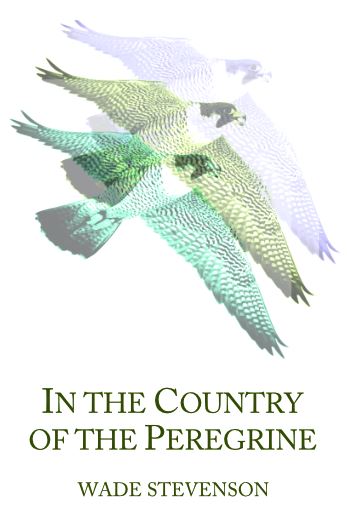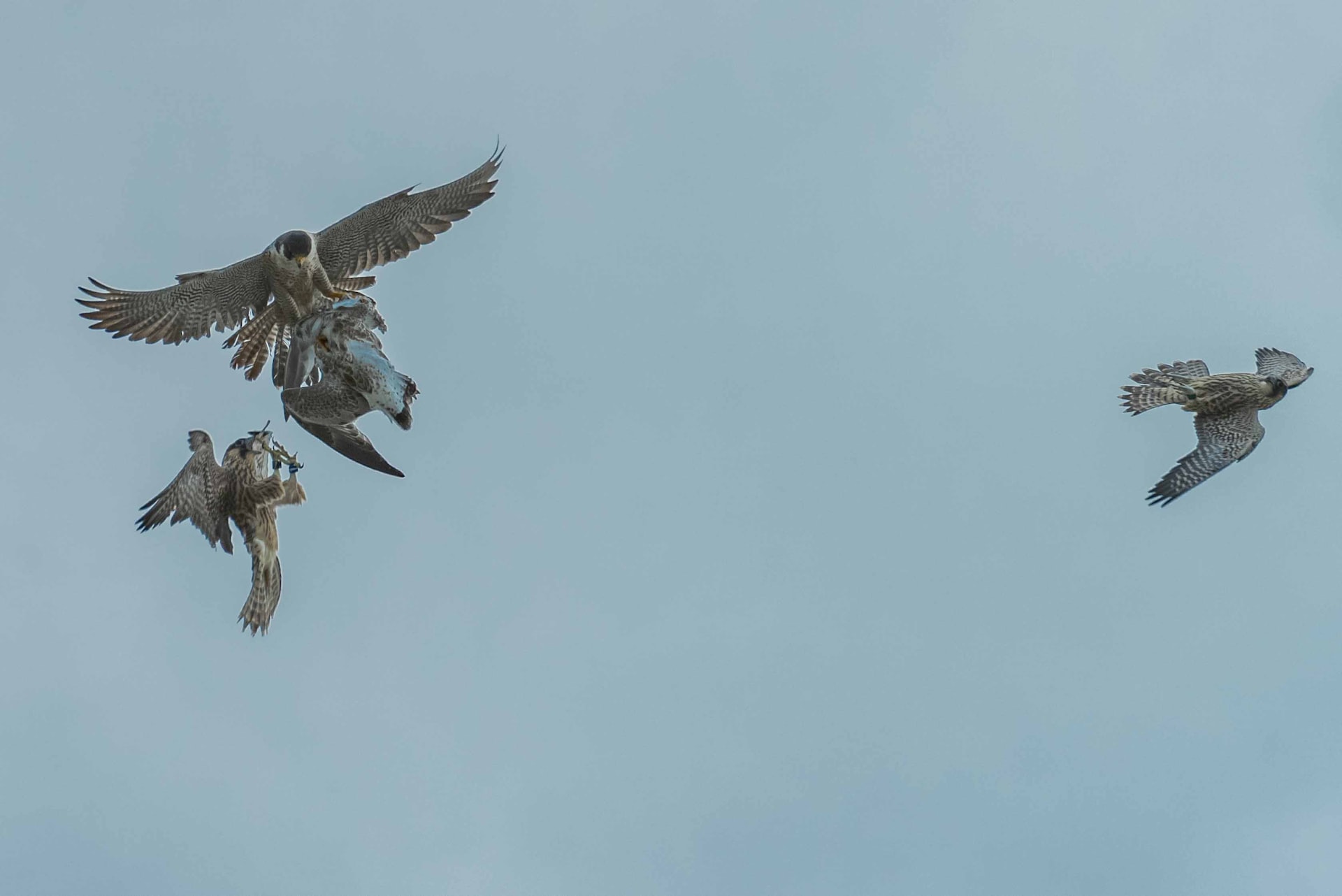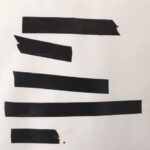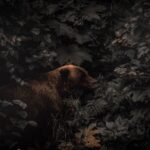by Nicole Yurcaba

According to a note in the first few pages of Wade Stevenson’s In the Country of the Peregrine, “peregrine” is originally a name meaning “one from abroad.” The word can also refer to a bird of prey, specifically the peregrine falcon. Within Stevenson’s collection, the speaker depicts physical journeys as well as emotional and spiritual ones, and using everyday, common language, the speaker reimagines existence, love, and death.
The initial poem, “The Song of the Peregrine,” prepares readers for the flight they are about to take. It is a poem of memory, of loss, of diaspora. With lines like “Your own home bombed to shambles / Your country overrun, language lost,” the poem becomes a foothold for the displaced, the wandering, and those who miss home.
The sentiments of the displaced displayed in “The Song of the Peregrine” echo in “Song of the Peregrine Man.” A slim poem, it portrays “A solitary man” whose “solitude holds him up.” The lines billow and wave left to right and then left again due to indentation, and the indentations of phrases like “As water a cork / As a pine branch snow” pit humanity against nature. These phrases juxtapose phrases like “A police siren wails,” and as such juxtapositions continue through the poem, confusion ensues. The confusion is a philosophical necessity, nonetheless, as readers grapple with the speaker’s observation of an individual who has “amputated the past” and grapples with “any promise of a future.”
“In the Darkness of the Autumn” is a Frost-like poem. Its speaker contemplates the season of autumn as a time of year and as a time of life. The opening lines rely on twists in phrasing to engage readers: “In the darkness of the autumn or is it rather / In the autumn of the darkness.” An individual’s solitude stands in contrast to society’s embrace. The speaker observes, “Another poor human being lost in the darkness / Of autumn.” In these lines, the speaker develops an Emersonian tone, but as the poem concludes, the message develops into an important one about pursuing one’s purpose despite the adversity facing them. The speaker shifts from third-person point-of-view to the first person: “I thought I once knew / Had only one thing left to do– / He started walking forward.” This shift in point-of-view is subtle and representative of the speaker’s growth and transformation.
In the Country of the Peregrine also touches on current events. Specifically, it addresses the war in Ukraine. “For Ukraine” is a heart-wrenching, imagistic poem. It portrays “hospital buildings razed” and “Streets uprooted like trees.” The dead “rise” and appear “Silhouetted against a dawning sky” where they dance with angels. The poem shies away from overt political messaging. Instead, even though it attempts to capture the horrific destruction occurring throughout Ukraine due to missile attacks, it morphs into a poem of hope.
In the poetic vein of collections like Michael McFee’s A Long Time to Be Gone, “I Have Loved So Much” contemplates aging and dying. It imagines and examines the fine, intangible threshold between life and death. It asks the question, “How could it possibly happen?” The speaker challenges the necessity of, and the many ways, in which people say “goodbye” to their own lives as well as those who have died. In Caitlyn Doughty-fashion, it offers an alternative: “It will be easier to say goodbye / When you simply can say / I have loved so much.” In these few lines, the poem develops a death-positive attitude–one of which even The Order of Good Death can envy.
“The Hurting,” while it may sound like an allusion to a 90s industrial metal album of some sort, is anything but raucous synthesizers and computer-programmed music notes set against heavy guitar riffs. It’s a poem which challenges readers to consider origins: “Let’s go back to the primordial wound / When the real hurting began.” It posits that hurt “starts with the womb.” The speaker describes human fate as a “disastrous glory,” and their tone is edgy, fatalistic. The speaker asserts, “The real wounds came later,” and, interestingly enough, the speaker never acknowledges any healing of any sort. Instead, life appears a series of continual, brutal lashings and woundings where “two lovers” attempt “To find a voice for all the sutured.” The poem returns to the idea of the displaced, posing that, ultimately, one continually searches for “A prayer for the placeless, poem for the lost.”
And, perhaps, that’s ultimately–with all its poems and considerations of the metaphysical weights individuals carry–what In the Country of the Peregrine is: “a prayer for the placeless, poem for the lost.” Its poems read like an existential playlist on which language’s multiplicity teases at possible answers to existence’s greater questions. It’s a collection unafraid to openly challenge the known and to explore the unknown. The speaker approaches both life and death with wonder and awe–reminding readers that instead of cowering, they should consider doing the same.
Nicole Yurcaba (Ukrainian: Нікола Юрцаба–Nikola Yurtsaba) is a Ukrainian (Hutsul/Lemko) American poet and essayist. Her poems and essays have appeared in The Atlanta Review, The Lindenwood Review, Whiskey Island, Raven Chronicles, West Trade Review, Appalachian Heritage, North of Oxford, and many other online and print journals. Nicole teaches poetry workshops for Southern New Hampshire University and is a guest book reviewer for Sage Cigarettes, Tupelo Quarterly, Colorado Review, and The Southern Review of Books.



Add your first comment to this post